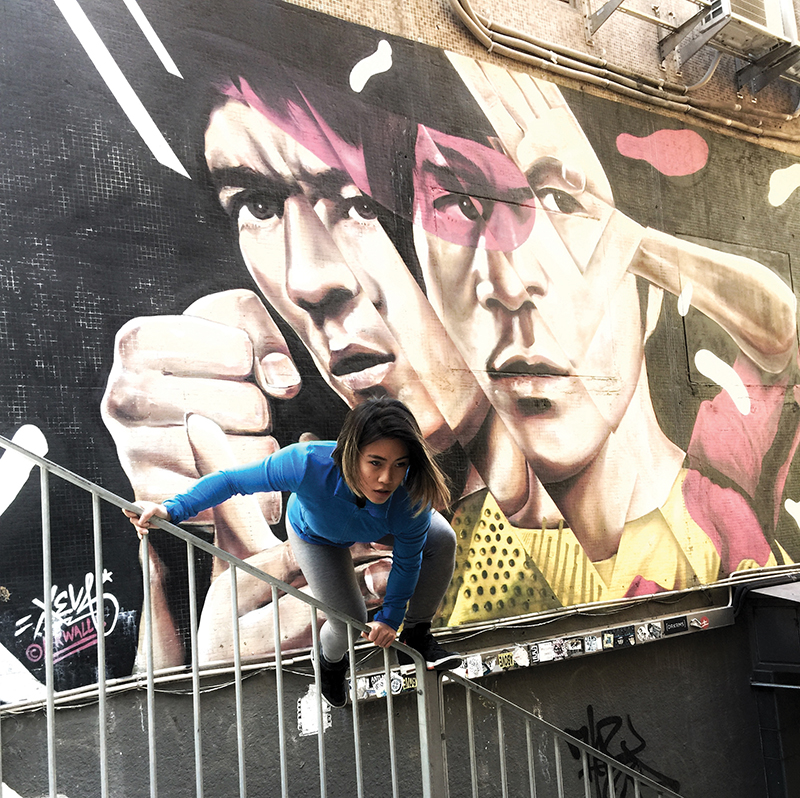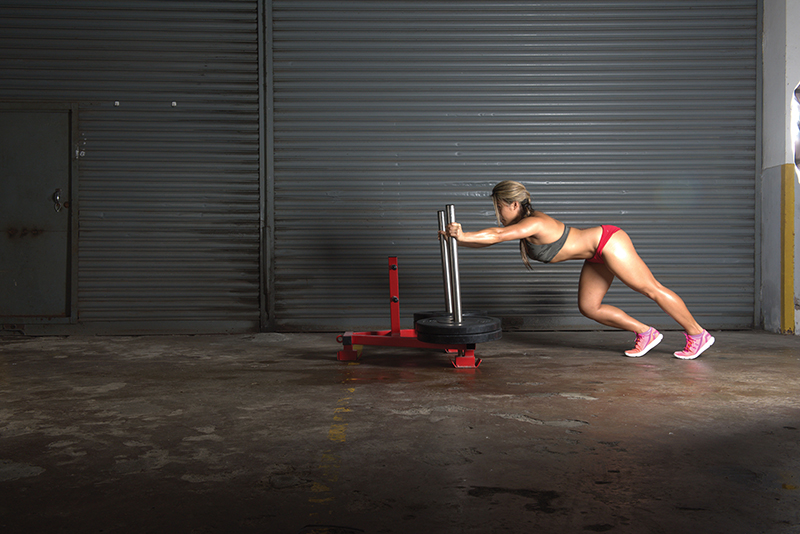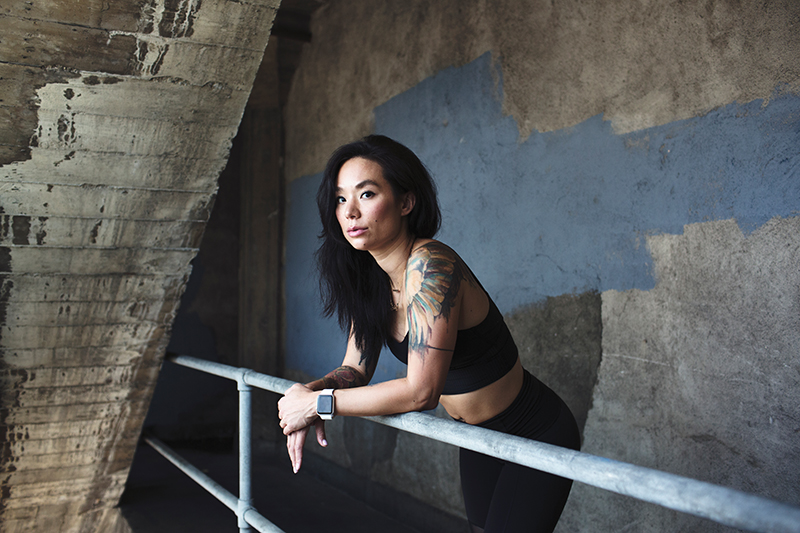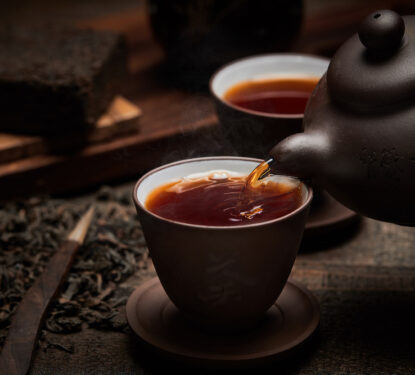Resilience. Everyone’s talking about how to thrive, despite – or perhaps even because of – life’s challenges. We speak to two incredibly resilient Hongkongers, who faced up to immense hurdles and came out fighting.
We all know the importance of a healthy body, but until very recently, few have spoken openly about the importance of mental health. That’s all changing though, as more of us are ready to have conversations about stress, wellbeing,
and – the current popular term – resilience.
“Put simply, ‘resilience’ can be described as the absence of negative outcomes, or even the presence of positive outcomes, in the wake of adversity. It’s why some people come through hard times in better shape than others.” says Nicholas Anderson, a certified coach and counsellor and partner at Forge, a psychological wellness consultancy.
So what is resilience, exactly? “It’s really important that we acknowledge that resilience is not a single innate trait or characteristic. Often, we find that people are resilient in some situations, but may be less resilient in others,” Anderson adds.
Your resilience is influenced by what’s known as “protective factors,” which can be different for everyone. For example, a sense of optimism is one protective factor. One person’s failure is another person’s learning opportunity and the good news is that you can learn this type of thinking. Exercise is another: the link between a healthy mind and a healthy body is proven to be strong.”
Having a supportive network of friends and loved ones is key. “Focusing on building deeper positive relationships is just as important as working on our own thoughts, feelings and behaviours,” Anderson says. In short, avoid isolating yourself and build a network of loved ones to help carry you through tough times.
So if you are going through a period of stress, when should you seek help? “if you notice changes in your sleep patterns, a lower mood or mood swings, anger, lacking motivation or sustained periods of feeling sad, then you would probably benefit from talking to an expert. It’s what they are there for,” Anderson suggests.
“I think mental health and wellbeing is finally starting to get the level of recognition it deserves. I also hope that more people feel that it is ok to speak up and seek help. Just to remind everyone that not coping is ok, it happens to us all.”
READ: RESILIENCE 101: TEN SIMPLE SUGGESTIONS FOR MENTAL STRENGTH
EMILY TAN

Moving from Malaysia to the US at a young age meant that Emily Tan had to adjust to life as an immigrant, with the discrimination and challenges that come with it. Having endured several personal and professional setbacks, she’s recently had to face up to the fight of her life: a diagnosis of Acute Myeloid Leukemia three months ago.
Q What does resilience mean to you?
To me, resilience means being adaptable during difficult times and practicing cognitive flexibility. Acknowledge the facts, observe the emotions and let them pass. Address the factual stressors, evaluate reasonable outcomes, and embrace the best calculated decision. Sticking to logic while not being dogmatic to it, and keeping up morale have been my personal formula for resilience.

Q Have you always been resilient, or is it something you’ve had to learn?
I’ve not always been resilient but I have always been stubborn! I was “the cry baby” among my relatives. Since moving to the States and starting our lives from scratch, I’ve become less sheltered. The things I used to fret about growing up among the upper-middle classes in Malaysia were no longer relevant to my life as a lower-class minority in America. My stubbornness and pride turned out to be helpful in nurturing those traits.
Q Can you talk us through a time in your life when you experienced a real challenge, and how it changed you?
I was 15 years old. I had my first kiss, my first relationship, my first driving lessons… and I got pregnant and had an abortion, which haunted me for more than 15 years. I felt overwhelmed with shame and guilt, afraid I might not be able to have children in the future, and betrayed as I wasn’t conscious when I lost my virginity (yes, #metoo). I was isolated as I didn’t have any close friends at the time, and all this, combined with the anger I felt towards myself led to suicidal thoughts and one suicide attempt. Practicing stoicism through my adult years helped in the face of other adversities: a failed business, two divorces, losing a car to an ex who also threw out all my belongings. They were all the result of choices that I made, and taking responsibility for those choices made it easy for me to do the hard work that was necessary to come out the other side. Now I am facing a new challenge: Acute Myeloid Leukemia. Life can change in an instant, and I realise I may not have a lot of time left to complete this process of self-forgiveness, of sharing my story and helping others feel less alone. If anything, this diagnosis has amplified a greater sense of purpose in what I want to do.
Q Can you tell us about any “teachable moments” you’ve had?
I don’t remember individual moments, but what has been consistent is counting on myself. I had Beyonce’s “Me, Myself and I” playing on repeat when I was 17, after having caught my then-boyfriend cheating on me. Those three words have stuck with me throughout challenging times. Face who you are when you are alone, love who you are and find out how you can help yourself. Me, Myself and I.

Q Can you recommend resources for when times get tough?
My recommendations are podcasts like The School of Greatness with Lewis Howes; The Tim Ferriss Show; and The Impact Theory with Tom Bilyeu. They all have phenomenal interviews with great thinkers and doers. Then, there are speakers like the therapist Esther Perel and the philosopher Jiddu Krisnamurthi. Both of them have released books, scripts and audiobooks dealing with all aspects of tough times, whether it is career, personal growth, or relationships. If quotes and sayings are all you can manage some days, Marcus Aurelius’s writing is pretty awakening.
Q What advice would you give to someone facing a professional or personal challenge?
Strip it down. Imagine the worst that could happen, really relish in it, live it for a moment as you picture it, list the logical solutions for it. Then reassess with the question “is it REALLY THAT bad?”. Most of time, our thoughts form the problems, rather than the facts of a situation. Now, is it still that big of a challenge?
LINDSAY JANG

In 2011, entrepreneur and yogi Lindsay Jang opened her first restaurant, Yardbird. After various personal and professional ups and downs, the business is going from strength to strength.
Q What does resilience mean to you?
Your ability to process negative information or news and digest it whole, emotionally react, and then proactively figure out the next steps. The more resilient you are, the faster you work through these steps.
Q Have you always been resilient?
For as long as I can remember, I’ve been pretty tough. I’m the oldest of three girls.
My dad never showed any sign of weakness no matter what was going on, while my mom wore her heart on her sleeve. I think I’m more like my dad but I definitely inherited some emotional vulnerability (albeit not much!) from my mom. I still get really down or feel broken at times, but I focus intensely on not dwelling or allocating much time to those states of mind.

Q Can you talk us through your experience of opening Yardbird?
Matt and I split up six months after we opened Yardbird in 2011. Our second child was 6 months’ old. It was a lot to deal with because we still had to work together, grow this new business, host guests, and everything else that comes with restaurant life, and there was so much anger and resentment lingering. I kept my head down, spent all my energy on the kids and the restaurant and just trusted that it would get better because we had been friends for so long. And we’re best friends today. It took about 18 months to get back to a good place but it was never terrible. We aren’t hurtful people; we just needed time to heal.
Yoga saved me during this time. Exercise is my moving meditation, it keeps me sane and lets me release all my pent-up feelings. Sometimes I cry at the end of a great class, and sometimes I slam a medicine ball hard on the ground, dedicating that force to whatever I’m dealing with that hour, day or week. I have to sweat five days a week at least, though I go for seven if my schedule allows.
Q What did you learn during this journey?
I know that the strength I have is fortified by the people I choose to work with and surround myself with socially. I never feel alone or isolated with an issue; there’s always someone to work with towards a solution. Resilience is so much easier to achieve if you have an army of support around. But you have to earn that love and understanding, and you have to reciprocate.
Q When you’re having a tough day, what do you say to yourself to get through it?
Honestly, I just work and grind through it. If I stopped or slowed down every time I had a hard day, I’d never get anything done! I do love massages; I’ll squeeze one in whenever and as frequently as I can.
Q What advice would you give to someone facing a professional or personal challenge?
Talk about it. Ask for help. If you are a good person and have a strong work ethic, look at this issue as a bump in the road – a very, very, very long road. Find the bright side.






